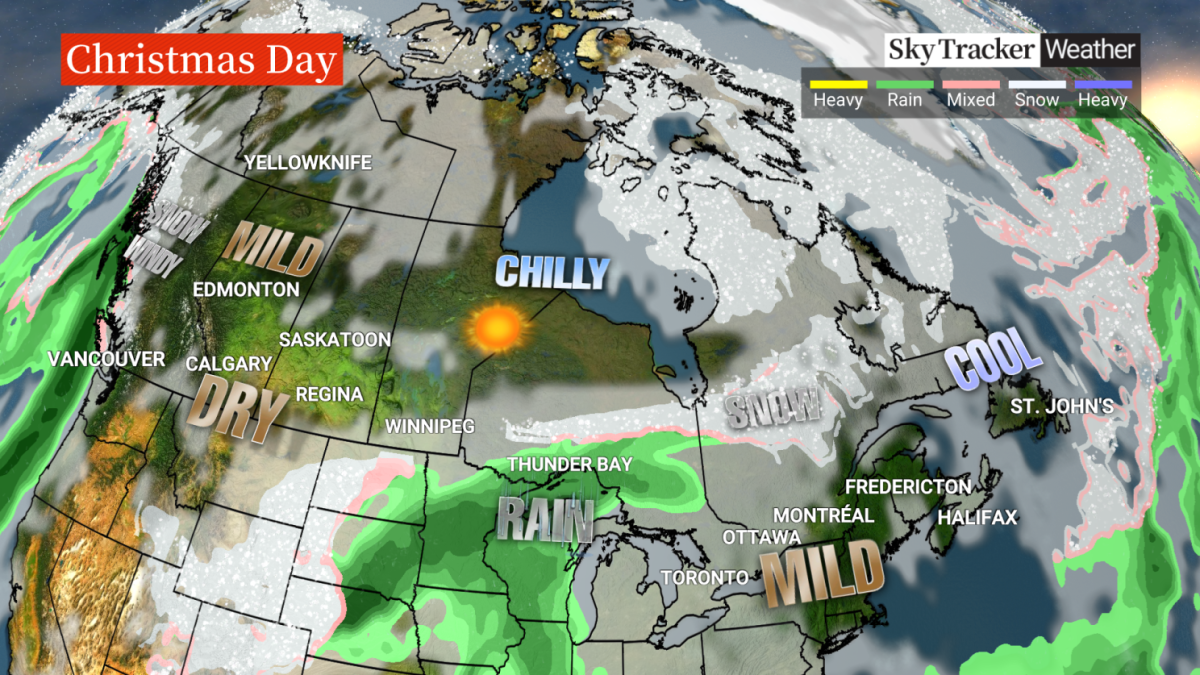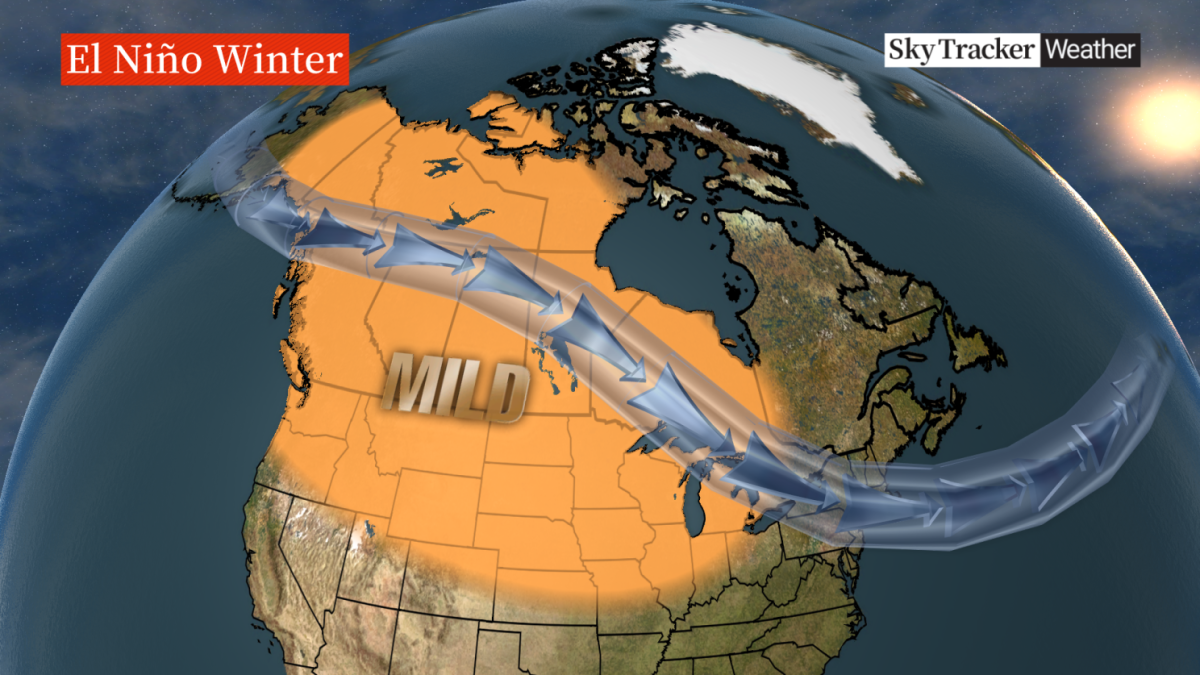It’s looking like a green Christmas for much of Canada this year.

So far, it has been a warm December in many parts of the country and that mild pattern is forecast to continue from coast to coast right through the holidays, said Anthony Farnell, Global News’ chief meteorologist.
“For a huge chunk of the country, this is going to be a green Christmas,” he said. “And I don’t remember a time where this many major cities were either seeing a green Christmas or maybe leftover snow.”

It was a white Christmas in many parts of Canada last year as a severe winter storm slammed across the country, bringing heavy snowfall, strong winds and freezing rain.
However, no major snowfall or storms are forecast in the next week, Farnell said.
For Christmas Day on Dec. 25, nearly all the provinces are expected to see above seasonal temperatures – in some cases by 10 to 15 degrees – and that doesn’t bode well for heavy snowfall, he added.
After three consecutive La Niña winters, a moderate El Niño is now well established in the central Pacific Ocean, according to Farnell.
During El Niño years, trade winds weaken and the Pacific Ocean tends to release more heat into the atmosphere, making areas in the northern U.S. and Canada drier and warmer than usual.
While El Niño is playing a major role in the mild winter conditions, climate change is also likely a contributing factor, Farnell said.
Here is what to expect this Christmas in different parts of the country.
Eastern Canada
For Atlantic Canada, in New Brunswick, Nova Scotia and Prince Edward Island, it is looking to be pretty much dry for the rest of the week and up until Christmas.
However, Newfoundland and Labrador still has a shot of getting a last-minute white Christmas, with colder air coming in around Christmas Eve and at least two centimetres of snow falling on Christmas Day, Farnell said.

Get breaking National news
People in Ottawa, Montreal and Halifax, meanwhile, will likely not get a white Christmas, but instead a brown or green one as warm, dry weather persists with above-seasonal temperatures for Christmas Day.
In Ontario, it’s a similar story of a “very mild pattern” and temperatures on Christmas morning ranging about 4 to 7 C. Thunder Bay could get some snow Christmas morning, which is not unusual, but even that is not a certainty this year, Farnell said.

Prairies
In Manitoba, Winnipeg is also likely to see a green Christmas with all the snow that’s currently on the ground melting in the next week, Farnell said.
In Saskatchewan, for places like Regina and Saskatoon that usually get a white Christmas, it doesn’t look likely to be the case this year as there is a very dry and sunny pattern throughout the week heading into Christmas Day.
Temperatures there on Thursday and Friday are getting up to 2 or 3 C, Farnell said, whereas the average high in Regina and Saskatoon is typically -10 C at this time of the year.
It’s supposed to be even warmer is Calgary, with temperatures on some days this week going as high as 8 or 9 C with sunshine.

British Columbia
As for British Columbia, it’s very rare for Vancouver and Victoria to get a white Christmas.
It doesn’t look like that will change this year, with showers forecast every day right up until Christmas morning, according to Farnell.
Territories
Each year, the northern territories typically get a white Christmas.
That tradition will continue this year even though it is “way warmer” than it should be for this time of the year, Farnell said.
Yellowknife, the capital city of the Northwest Territories, has 25 centimetres of snow on the ground and an average high of -20 C.
Over the next week, though, the average high temperatures will be about five to 10 degrees above seasonal.

What about New Year's?
Despite a green Christmas for most Canadians and an “unusual December,” there are signs that the weather pattern could change toward the new year and January could turn “much colder,” Farnell said.
That bodes well for Ottawa’s Rideau Canal Skateway, which remained closed for the first time in history last winter.
“Just because December is warm, doesn’t mean it stays that way for the rest of the winter,” Farnell said.











Comments
Want to discuss? Please read our Commenting Policy first.